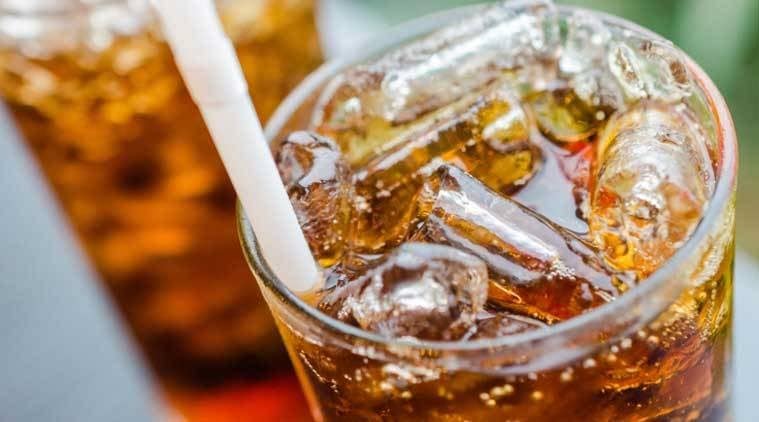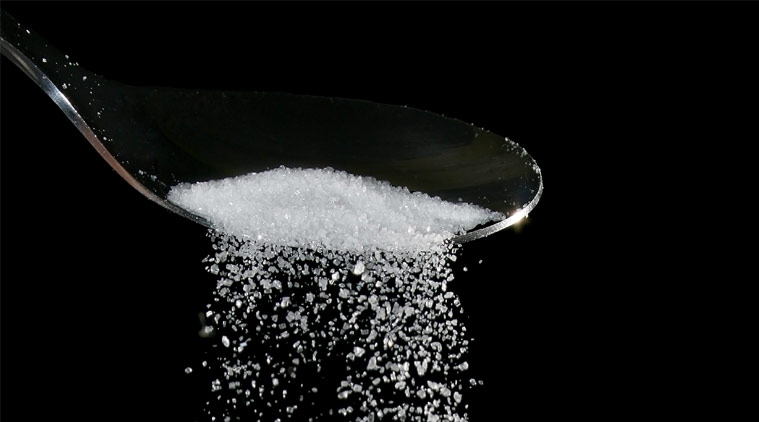We spoke to doctors who gave us an insight into what really comprises diet soda, whether it is indeed a 'healthier' alternative, and how much should one consume.

The attention is back on diet soda — a popular beverage in many parts of the world — that is known for its sweet, bubbly taste, and is said to be a ‘healthier alternative’ to regular soda. While there are no conclusive studies that buttress the claim that diet soda may help reduce the bulge and is indeed healthy, there are quite a few studies and research that suggest quite the opposite — that diet soda may not really help people who want to reduce their sugar or calorie intake. It instead makes them prone to serious health conditions including diabetes, fatty liver, dementia, heart disease, and stroke. Indianexpress.com spoke to doctors who gave us an insight into what really comprises diet soda, whether it is indeed a ‘healthier’ alternative for you, and how much you can have.
What is diet soda?
Diet soda is essentially a mixture of carbonated water, artificial or natural sweetener colour flavour and other food additives. Dr Divya Sharma, dietician, Motherhood Hospital, Noida says “it usually has very few to no calories and no significant nutrition”.
Dr Samrat Shah, MD Medicine and Metabolic Specialist, Bhatia Hospital Mumbai, says: “Even though they contain no sugar, diet sodas are usually sweetened with artificial sweeteners like aspartame and saccharin. Also, a high amount of caffeine is found in these drinks.”
A post shared by AHSN (@ahsn_daily) on Dec 26, 2019 at 4:30pm PST
Dr Shah further notes that there is “growing evidence by analysis that diet sodas can lead to heart conditions” like heart attack and high blood pressure, metabolic issues like diabetes and obesity, brain conditions like dementia and stroke, liver problems like Non-alcoholic Steatohepatitis (NASH) etc. They also cause chronic inflammation of the blood vessels. “The high amount of caffeine and artificial sweeteners in the soda gives a high release of neurotransmitters in the brain called dopamine. Dopamine gives a feel-good feeling for some time. However, when it gets withdrawn within hours of its consumption, then the person starts feeling low, tired and fatigued again. Owing to the feel-good factor, people feel the urge to consume diet sodas again and again. The craving for sugar also goes high since you are consuming artificial sweeteners,” he notes.
The major advantage of diet soda, as an alternative to regular soda, is that it helps cut down sugar and calorie intake, but that’s all about the positives considering that it leads to other lifestyle changes like increase in appetite. While artificial sweeteners contain far fewer calories than sugar, studies in both humans and animals suggest they undermine weight management. Researchers who published their findings in the 2016-edition of the journal Cell Metabolism discovered how drinking diet soda can increase hunger.
You might think you’ve made a better choice by switching to the diet variety. But is it so?

Just as they undermine your body’s ability to regulate appetite, the artificial sweeteners in diet soda might play tricks on your ability to manage blood sugar. Artificial sweeteners don’t raise blood sugar themselves, but they might make it more difficult for your body to keep blood sugar levels in check, suggested a study published in the 2013-issue of the journal Diabetes Care. According to the study, when obese adults consumed sucralose and then sugar, they released more insulin and their blood sugar levels rose higher than participants who didn’t have any artificial sweeteners before ingesting sugar. This suggested that artificial sweeteners might contribute to insulin resistance.
Dr Sharma says that women, who consume diet soda during pregnancy are more likely to put their kids at risk of obesity. “Such children had poorer non-verbal intelligence and difficulty in memorising words,” she says.
Diet soda versus regular soft drinks
While Dr Neha Patania, dietician, Paras Hospital Gurugram, suggests that between regular soft drinks and diet soda, “diet soda may be a better option” for those looking to cut down on the calories, its regular consumption should not be encouraged. “Soft drinks or energy drinks don’t have those essential nutrients, which are needed in our body. Even sugar content in diet soda is very high,” she says.
However, Dr Shah points out that “It is best for people to avoid consuming diet sodas”. “Beverages like diet soda or regular soda are equally bad for the body. People should avoid these beverages as much as possible and instead go for replacements such as sparkling water,” he says.
Talking about replacements, Dr Pathania suggests, “It should be replaced with coconut water, homemade soup, buttermilk and lassi.” Dr Sharma says, “Milk and 100 per cent fruit juice are good choices, too, for both hydration and nutrition.”
So, the next time you buy a diet soda, here’s what you should check for:
People must check the content labels for aspartame and caffeine. “They should restrict themselves from consuming these sodas. One drink once in a week or two weeks is fine,” says Dr Shah.
For all the latest Lifestyle News, download Indian Express App
Source: Read Full Article







